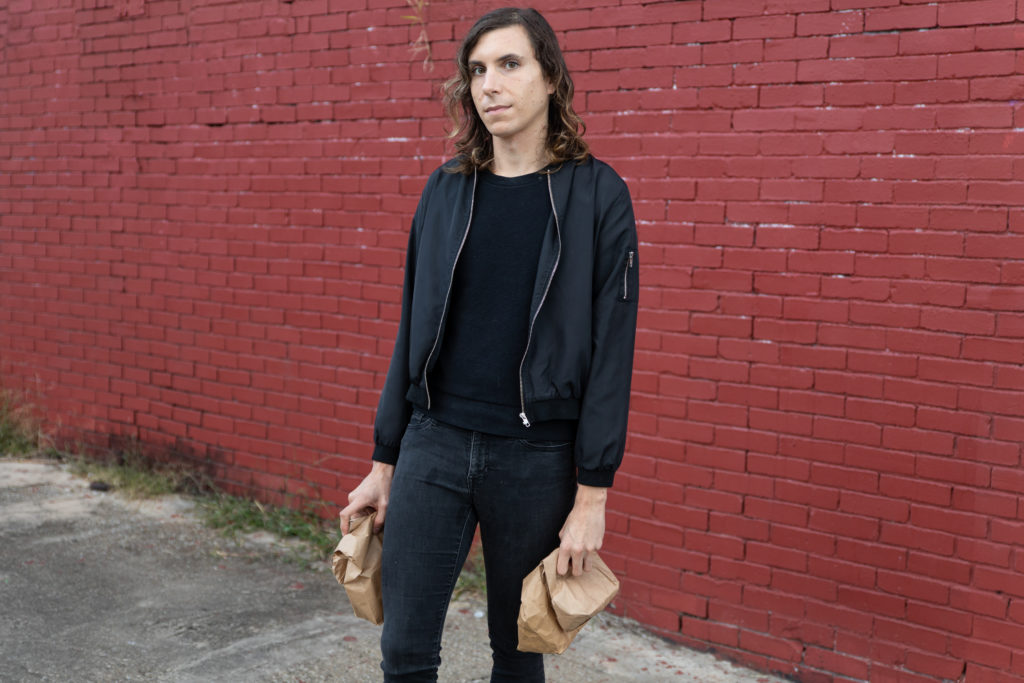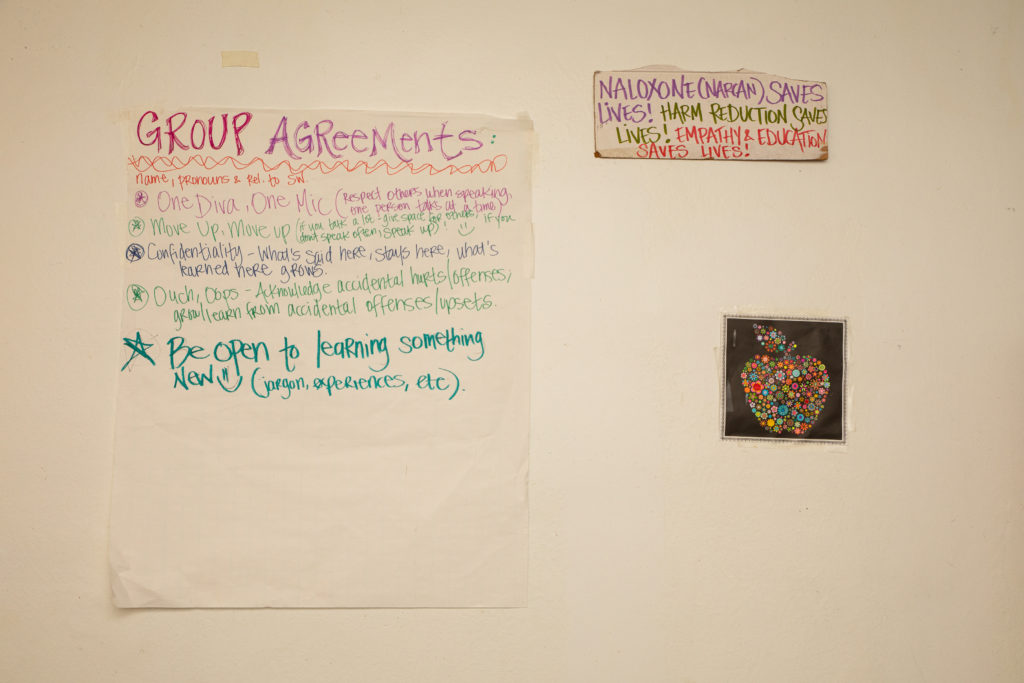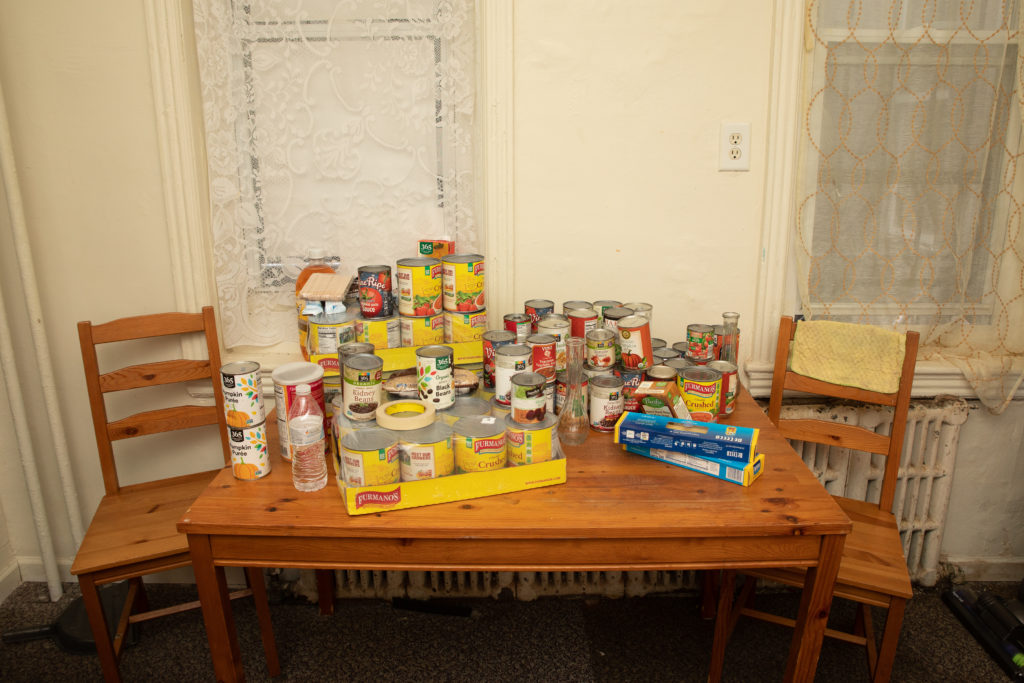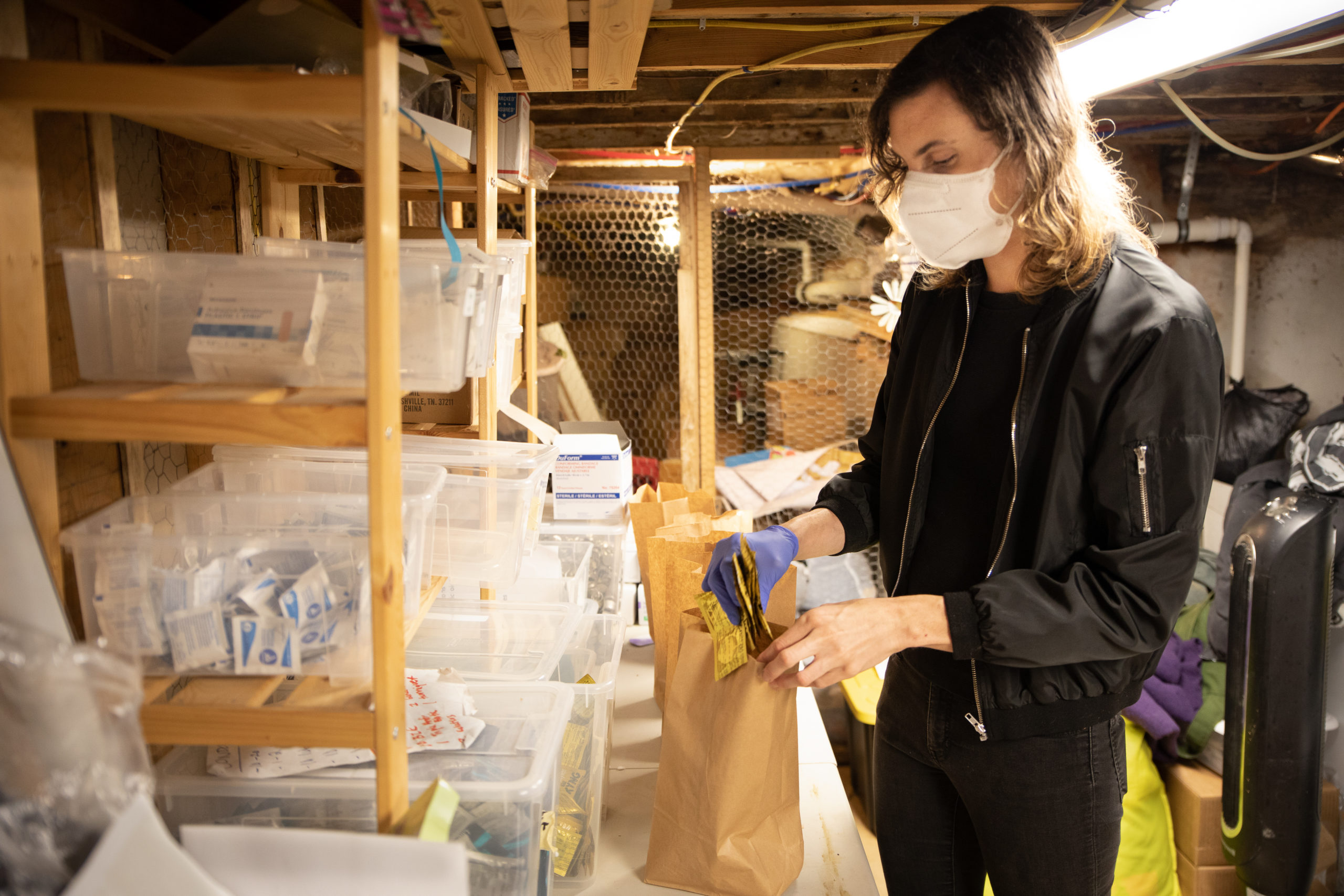Project SAFE was established in 2004 with one goal in mind: to create a community for street-based sex workers who use drugs, the majority of whom are not men. Seventeen years later, this all-volunteer, grassroots harm reduction collective has built a vast and supportive network of women, queer people and trans people in Philadelphia.
To learn more about Project SAFE, a partner of Vital Strategies’ Overdose Prevention program, I spoke with Delivery Coordinator and Board Member Lulu Duffy-Tumasz. Duffy-Tumasz became involved with the volunteer-run organization five years ago because they wanted to support sex workers through a mutual aid framework.
Their desire to help queer and trans communities came from being a queer person who wanted to do justice to the history, needs and organizing efforts of queer sex workers—all whom are often overlooked by harm reduction resources. For Duffy-Tumasz, “harm reduction is about autonomy and about people being able to be supported and […] continue doing what they want to with their lives.” That’s what makes Project SAFE so significant. Their approach to harm reduction not only meets the community where they are, but also evolves with them.

Meeting the unanswered needs of women, queer people and trans people begins with recognizing failures in the system. Duffy-Tumasz believes it’s essential to center the people who’ve faced the most harm. They spoke about how women and queer people often don’t feel comfortable accessing needle exchanges, which historically serve cisgender men, due to the presence of abusive ex-partners and bad clients.
They’ve also seen that traditional services for drug use are rarely equipped to care for intersectional identities like those of Project SAFE’s clientele. Duffy-Tumasz cited these factors as reasons why Project SAFE comes from “a place of affinity and not charity.”
Their mutual support framework is built on shared identity, friendship and empathy. Project SAFE pointedly employs people with experience using drugs and/or doing sex work because, in Duffy-Tumasz’s words, they know and can teach others the most about harm reduction. As such, Project SAFE’s existence provides a long-deserved and an authentic voice for queer, trans and woman-focused care in Philadelphia.

Care takes many forms through the invaluable services offered by Project SAFE. The organization started conducting outreach on Kensington Avenue in Philadelphia. They’ve since expanded by opening a community drop-in space known as Serenity House, organizing a sex worker collective and advocating for full decriminalization of drugs and sex work.
They also operate a home delivery program, which has grown with Project SAFE’s partnership with Vital Strategies. Duffy-Tumasz has been integral to this service throughout their tenure with the collective, sharing a longtime hope of reaching more trans women through this approach. They often speak with friends and current participants in hopes of finding more women who are hard to find—or may not think someone would look for them.
Duffy-Tumasz said that receiving funding from Vital has allowed them to scale up deliveries to twice weekly, which proves critical care when there is increased isolation and demand under the pressure of the COVID-19 pandemic. Deliveries involve bringing bulk harm reduction supplies directly to folks’ doorsteps, including nontraditional items such as pepper spray.
These additions are provided in response to community requests. Duffy-Tumasz emphasized that deliveries are “about being able to use as safely as possible.” That means providing people with whatever tools they need to reduce every kind of harm.

A second product of Project SAFE’s partnership with Vital Strategies is the recently finalized “Using Drugs Alone” toolkit: “A Guide for People Who Use Drugs by People Who Use Drugs.” Each page offers strategies for preventing fatal overdose, such as learning about the day’s drug supply, implementing overdose precautions for sex work and planning before using.
This document speaks directly to Duffy-Tumasz’s advice for how we can improve access to harm reduction services and better empower women, queer people and trans people in the process: “It’s about hiring LGTBQ people to do the work. That shows their voices are valued.”
With funding from Vital Strategies, Project SAFE increased their funded positions and gave raises to two longtime members for their services. The significance of seeing those folks recognized for their efforts in a society that doesn’t appreciate the expertise of people who use drugs or do sex work was not lost on Duffy-Tumasz.
In their eyes, the key first step for all grassroots harm reduction work is “actually listen[ing] to the people who are the most marginalized and what they say the problem is and what the solution is.” By uplifting voices that aren’t backed by institutions, Duffy-Tumasz believes we can begin to put power back into the communities being served—where it belongs.
Learn more about Vital Strategies Overdose Prevention Program and follow us on Twitter at @VitalStrat.
Get Our Latest Public Health News
Join our email list and be the first to know about our public health news, publications and interviews with experts.
